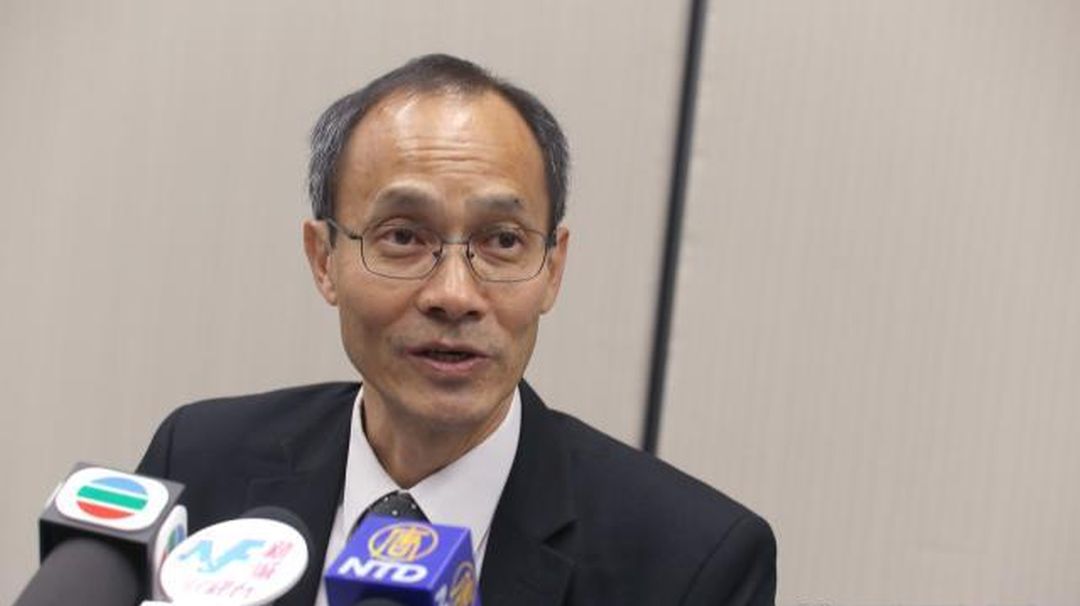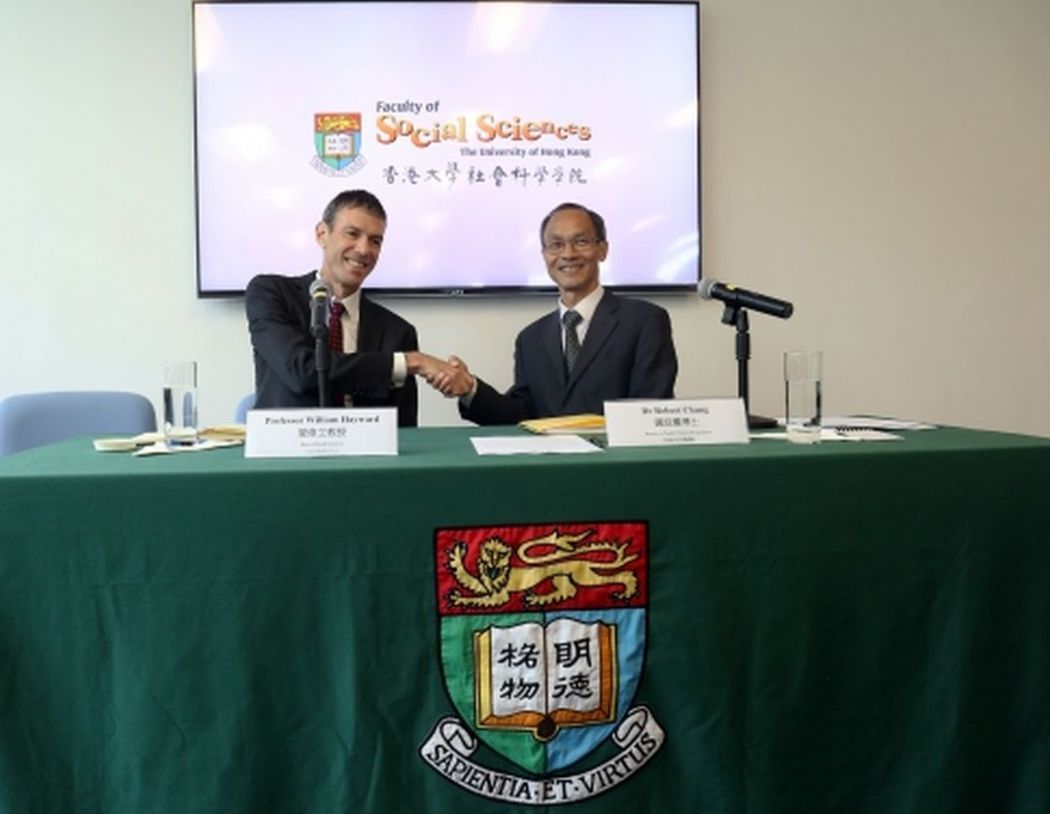The Public Opinion Programme of the University of Hong Kong (HKUPOP) has announced that it will spin off from the university and continue its work independently, as a separate body.
The programme, led by professor Robert Chung, will officially close down on June 30 and the Hong Kong Public Opinion Research Institute (HKPORI) will be launched.

The new institute will run on donations and will conduct public opinion surveys in mostly the same way, Chung said. He will be leading it until a successor has been found.
“For this new institution and myself, we definitely won’t sell out for money… I am not at all worried that political or economic pressures will compromise our integrity or quality. It’s simple, [at worst] we just stop doing it,” he said.
The university added that the new body would be autonomous and independent, and the move was partly driven by Chung’s impending retirement.
HKUPOP was established in 1991 and operates as a self-financed unit under the Faculty of Social Sciences. The programme publishes over 60 polls per year and regularly charts the popularity of the government, chief executive and top officials.
It also rates local confidence in the city’s One Country, Two Systems arrangement, feelings towards the 1989 Tiananmen Massacre, democratic development, as well as livelihood, health and media issues.

The programme has previously faced controversy, including a 2017 incident where pro-Beijing critics disputed the accuracy of a poll that reflected poorly on then-leader Leung Chun-ying.
HKUPOP was also behind a public, mass engagement voting platform which surveyed Hongkongers months ahead of the 2014 Umbrella Movement protests. It also conducted a mock leadership election in 2012, despite suffering cyberattacks during both polls.
Chung, who has been a figurehead at the programme since its founding, said he felt “no blame, no anger, no regret” over the transition – a response he described as neutral.
HKU’s Dean of Social Sciences William Hayward said that the programme had “played a significant role in civil and political discourse in Hong Kong.”
New institution
HKPORI is seeking HK$6 million in public donations to make up the budget for its first year, with the expectation that it will become self-sustaining afterwards, Chung said.

The current programme will fulfil all existing contracts, and Chung said he hoped the 14 full-time, and over 100 part-time, staff members could all transition to HKPORI.
Asked whether his work would suffer without HKU’s backing, Chung said he would maintain his principle of “integrity and quality” when conducting research. Reporters also asked Chung whether the move could be seen as HKU distancing itself from sensitive political topics.
“I have constantly asked myself over many years, is the HKU label a positive or a negative? Did I – and my work – add or detract value from the university? Frankly, I still can’t tell,” he said of the institution where he has worked for four decades.
Chung said he would focus on his work, which he described as necessary for Hong Kong and China. Despite instances of public criticism, Chung said he was mostly concerned about how his work was evaluated by fellow academics.
As for whether HKPORI will continue to poll on sensitive issues like June 4, Chung said the questions should be posed to the public: “This type of activity will depend on whether the public still wants it, and if so they would need to contribute.”
Retirement plans
The move to form HKPORI was also partly driven by Chung’s upcoming retirement, with the new institution freeing him from the constraints of the university’s retirement age policy.

HKU changed its policy in 2016 so that professors, after the normal retirement age of 60, will have to be reappointed in the form of a non-tenured contract, on the basis of “faculty needs, budget and plan” as well as merit.
Chung, who was almost 62, applied for a one-year reappointment contract which started last July. He has not applied for another contract with HKU.
HKU’s retirement age policy has been criticised for squeezing out talent, with senior professors such as Johannes Chan and Petula Ho among those affected. Ho had previously called the system “humiliating” for experienced scholars who stayed loyal to HKU.
Nevertheless, Hayward said that discussions about a new institution started some time ago, and the issues facing HKUPOP would need to be discussed at some point regardless of when Chung actually retires.
Hayward said a transition made the most sense: “Dr Chung is the leader of the public opinion programme, and when he leaves HKU, it’s very difficult for HKU to continue with it.”
As for his new role in HKPORI, Chung said he would take ten per cent of the market rate salary, and he expected to be able to leave his leadership post by 2023 – the halfway point of Beijing’s 50-year promise made at the 1997 Handover.
The Hong Kong Free Press #PressForFreedom 2019 Funding Drive seeks to raise HK$1.2m to support our non-profit newsroom and dedicated team of multi-media, multi-lingual reporters. HKFP is backed by readers, run by journalists and is immune to political and commercial pressure. This year’s critical fundraiser will provide us with the essential funds to continue our work into next year.

